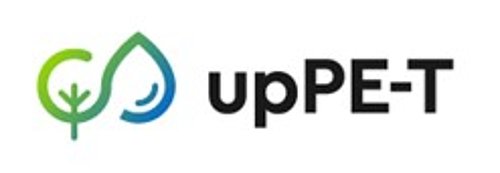upPE-T will directly contribute to achieve the expected impacts of the topic by:
- upcycling up to 60% of food & drink packaging plastic wastes (PE & PET) by 2030,
- highly contribute to increase upgraded waste recycling facilities by introducing an innovative biocatalytic system in the recycling sector,
- establishing a viable roadmap to ensure 60% of food and drinks plastic packaging will be produced from renewable sources,
- increase awareness among European citizens of products and materials upcycling capacity, and
- standardisation & certification facilitating future replicability and widest use and ensure market acceptance.



